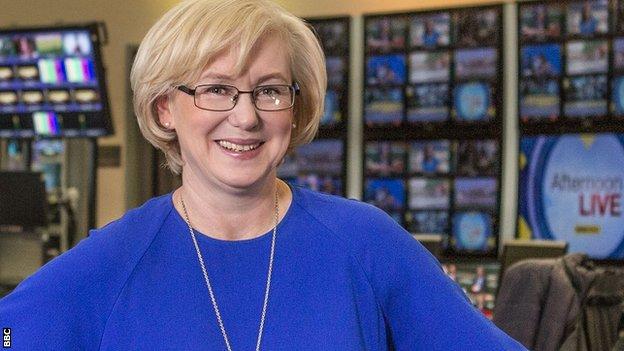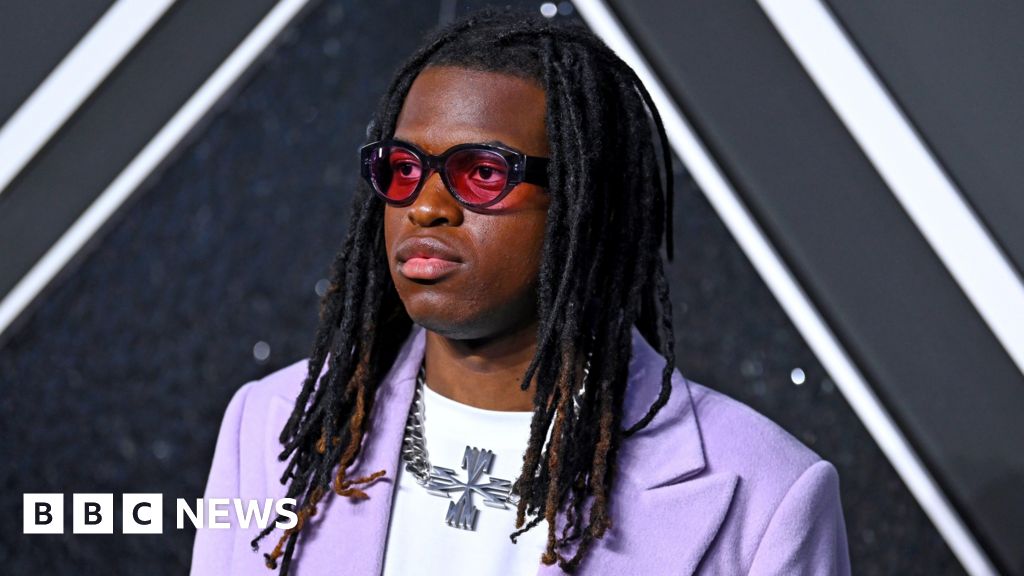ARTICLE AD BOX
 Barbara Slater carried the British flag at the opening ceremony of the 1976 Montreal Olympic Games
Barbara Slater carried the British flag at the opening ceremony of the 1976 Montreal Olympic GamesBBC Director of Sport Barbara Slater has announced her retirement after 14 years in the role.
Slater, who has worked at the BBC for 40 years after switching from a career as an Olympic gymnast, will step down next year.
Director General Tim Davie said Slater was a "pioneer, innovator and outstanding leader" who had enjoyed an "extraordinary career at the BBC".
"[It] has been an absolute passion, never just a job," said Slater.
"It was this week 40 years ago that I first walked through the doors at Broadcasting House.
"Since joining in 1983 I've been privileged to have had such amazing opportunities and the delight of working with such talented colleagues and partners."
The BBC said Slater was one of the most respected figures in the broadcasting industry who had transformed BBC Sport during her time as Director of Sport.
She will step down in the spring of 2024.
Charlotte Moore, BBC Chief Content officer, said Slater had "tirelessly driven BBC Sport forward in the face of an ever-competitive landscape".
She added: "Barbara has had an extraordinary career at the BBC and leaves a legacy few will ever be able to replicate. She is a much-respected leader, a real trailblazer for women in the industry who can proudly say she has inspired the next generation.
"I will really miss working with her but wish her all the best for whatever the future holds."
Moore added that Slater was leaving BBC Sport in "fantastic health" with rights deals in place, such as Wimbledon up to 2027, Uefa Men's Euros until 2028 and the Olympics until 2032.
Director General Davie added: "Barbara has had an extraordinary career at the BBC - a pioneer, innovator and outstanding leader - she has kept the BBC at the forefront of sport for a generation. I wish her well. She will leave the BBC with a tremendous legacy."
Slater joined the BBC in 1983 as a trainee assistant producer in the Natural History Unit in Bristol.
But she spent the next period of her career as a producer at BBC Sport, specialising in outside broadcasts and overseeing the production of a range of sports including tennis and golf.
She was then Head of Production and Head of General Sports, before taking up the Director of Sport role in April 2009.
Slater was responsible for the BBC's coverage of the London 2012 Olympic games - the most watched national television event in UK history with 51.9m people tuning in over the event.
In her role, Slater brought the FA Cup and cricket back to BBC television and oversaw the production of 14 men's and women's football World Cups and European Championships, seven summer and winter Olympic Games, plus Wimbledon and the Six Nations.
Slater led the BBC's development of women's sport coverage, with the Women's World Cup football final in August watched by 12m viewers on BBC One.
She also oversaw the department's move from London to Salford, and the growth of sport on BBC's digital services, with the BBC Sport website and app growing to become the largest service of its type in the UK.
Slater said special memories included "being in the director's chair for occasions like Pete Sampras' seventh Wimbledon triumph, to leading the move to Salford, and seeing the extraordinary growth of our digital services and new talent excel".
"I also hope that in showcasing the brilliance of women's sport the BBC has played its part in changing attitudes, increasing its profile and inspiring the next generation," she said.
"I must also make special mention of the Olympic Games, having been a competitor in 1976 and then leading the sport teams covering a home Games in 2012. It was a monumental achievement for the BBC and everyone involved, as the UK hosted a sensational Olympics in London.
"I will be following the BBC's coverage of Paris next summer - this time as a proud sports fan."
In her Director of Sport role, she is responsible for the corporation's range of sport output across TV radio and online, including TV shows such as Match of the Day and Olympics coverage, sport output on BBC Radio 5 live and sports news coverage on news programmes.
She has been at the forefront of negotiations for multi-million pound rights deals which determine the sporting events broadcast by the BBC.
And she also helped oversee the BBC's response to issues such as the impartiality row earlier this year following a tweet by Gary Lineker.
Barbara was awarded the OBE in 2014 for her services to sports broadcasting.

 1 year ago
33
1 year ago
33








 English (US)
English (US)